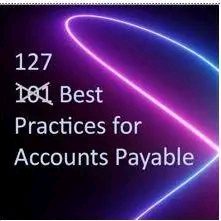Should You Quickly Pay Off Your Student Loans?

Paying off student loans can feel like a daunting task, especially when you’re just starting your career.
The burden of student loan debt often prompts graduates to consider paying off their loans as quickly as possible.
However, is that always the best financial decision?
In this article, we’ll delve into the pros and cons of quickly paying off your student loans and explore whether it’s the right choice for you.
Pros of Quickly Paying Off Student Loans
1. Interest Savings
One of the most significant advantages of paying off your student loans quickly is the potential for substantial interest savings. When you pay down your principal balance sooner, you’ll accrue less interest over the life of the loan, ultimately paying less money overall.
2. Financial Freedom
Being debt-free can provide a sense of financial freedom and peace of mind. Without the weight of student loan debt, you may have more flexibility to pursue other financial goals, such as buying a home or saving for retirement.
3. Improved Credit Score
Successfully paying off your loans can positively impact your credit score, making it easier to qualify for lower interest rates on future loans and credit cards.
Cons of Quickly Paying Off Student Loans
1. Lost Investment Opportunities
By funneling all your extra funds into loan repayment, you may miss out on investment opportunities that could yield higher returns over time.
For example, investing in the stock market or a retirement account could potentially outpace the interest rate on your student loans.
2. Emergency Fund Neglect
Rapidly paying off loans might leave you without a substantial emergency fund. In case of unexpected medical expenses or job loss, having a financial safety net can be crucial.
3. Forgoing Loan Forgiveness
If you’re eligible for loan forgiveness programs, such as Public Service Loan Forgiveness (PSLF) or income-driven repayment plans, aggressively paying off your loans may not be the most strategic move.
These programs can forgive a significant portion of your debt after a certain number of qualifying payments.
4. Missing Out on Tax Benefits
Student loan interest can be tax-deductible, providing some relief during tax season. Paying off your loans quickly could mean losing out on this potential tax benefit.
FAQs
Should I pay off my student loans as fast as I can?
The decision to pay off your student loans quickly depends on your unique circumstances. If you have high-interest loans and want to minimize interest costs, it can be a good strategy.
However, if you have lower-interest loans and qualify for forgiveness programs, other financial goals may take precedence.
Will paying off my student loans quickly improve my credit score?
Yes, successfully paying off your student loans can have a positive impact on your credit score. It demonstrates responsible financial management, potentially making it easier to qualify for lower interest rates on future loans and credit cards.
Can paying off student loans quickly affect my ability to buy a home?
Paying off student loans quickly can affect your ability to buy a home. While it reduces your debt-to-income ratio, which is favorable for mortgage approval, it may also deplete your savings, making it harder to cover a down payment and closing costs. Finding the right balance is key.
Are there tax benefits to paying off student loans slowly?
Yes, there can be tax benefits to paying off student loans slowly. The interest paid on student loans is often tax-deductible, providing potential tax savings. However, you should weigh this benefit against your overall financial strategy.





